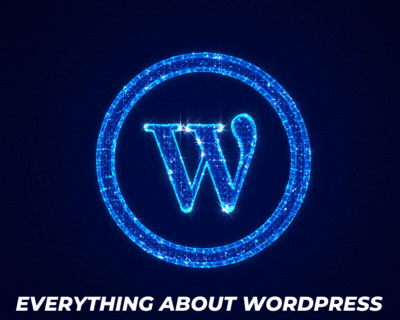WordPress Development
In Biloxi, MS
WordPress development has left an indelible mark not only on Biloxi, MS but on the world of web design and content creation. Created by Matt Mullenweg and Mike Little, WordPress emerged as a revolutionary solution that empowered individuals and businesses to establish an online presence with ease. From its humble beginnings as a simple blogging platform to its current status as a versatile content management system (CMS), WordPress has transformed the way websites are built and managed. In this exploration of WordPress's journey from its inception to its present-day relevance, we will delve into its evolution, milestones, and the significant impact it has had on web development.
Early Days and Foundation (2003-2007):
Back in 2003, WordPress emerged as a brainchild of Matt Mullenweg and Mike Little, originating from a desire to provide an elegant platform for blogging. As an open-source project, WordPress's foundations were rooted in collaborative development, inviting contributions from a passionate community of developers and enthusiasts. This community-driven approach sparked a virtuous cycle of innovation and refinement. With each successive version release, WordPress grew in functionality and flexibility, laying the groundwork for its transformation from a modest blogging tool into a powerful content management system (CMS).
As WordPress progressed, its influence began to extend beyond individual bloggers, igniting curiosity among businesses, publishers, and web enthusiasts. This era laid the groundwork for the dynamic evolution that would define WordPress's journey over the years, encompassing not only its technical advancements but also its profound impact on shaping the landscape of web development.
Diversification and Content Management (2008-2012):
As the years rolled on, WordPress outgrew its origins as a blogging tool. It metamorphosed into a full-fledged content management system, empowering users to create diverse websites beyond just blogs. The introduction of themes allowed for visual customization, while plugins extended functionality in astonishing ways. This period marked the point where WordPress transitioned from being a tool into a solution, catering to various website needs.
Mobile Responsive and User-Centric (2013-2017):
With the surge in mobile device usage, the call for mobile-responsive design became undeniable. WordPress responded by making responsiveness a priority, ensuring websites adapt seamlessly to different screen sizes. Simultaneously, a user-centric approach emerged, emphasizing intuitive interfaces and enhanced user experiences. Updates continually refined these aspects, keeping WordPress aligned with evolving user expectations.
In fact, from 2013 to the present, mobile device usage has seen an astonishing rise. In 2013, mobile devices accounted for approximately 16% of global internet traffic. Today, that number has surged to over 55%, highlighting the profound shift in how users access and interact with online content. Source: StatCounter Global Stats.
WordPress's commitment to mobile responsiveness has played a pivotal role in accommodating this transformation. By catering to the preferences of mobile users and optimizing the browsing experience across devices, WordPress has ensured that websites built on its platform remain accessible, engaging, and user-friendly in an increasingly mobile-centric digital landscape.
Gutenberg and the Modern Era (2018-Present):
In 2018, WordPress unveiled the Gutenberg editor, which revolutionized content creation through a block-based system. This visual approach simplified the creation process, enabling both developers and content creators to shape web content with ease. Since its introduction, Gutenberg has continued to evolve, introducing new blocks and enhancing the website-building experience. This commitment to innovation solidified WordPress's position as a forward-looking CMS.
Impact and Relevance:
WordPress democratized web development by providing a platform accessible to individuals and small businesses. No longer limited to tech experts, anyone could create and manage a professional website, enabling entrepreneurial endeavors to flourish online. This inclusivity transformed the digital landscape, spawning countless websites that collectively shaped the internet.
Ecosystem and Community:
The WordPress ecosystem is a thriving hub of themes, plugins, and resources that extend its capabilities. Themes offer tailored aesthetics, while plugins provide bespoke functionalities, shaping websites to individual needs. This thriving ecosystem owes its vitality to the dedicated global community of developers, designers, and users who contribute, collaborate, and support one another.
SEO & Performance:
In the dynamic realm of online visibility, search engine optimization (SEO) reigns as an essential strategy for driving organic traffic and gaining a competitive edge. WordPress's architecture inherently lends itself to SEO practices, contributing to higher search engine rankings and increased discoverability. This optimization begins with clean and structured code, facilitating search engine crawlers' understanding of your website's content.
One of the overlooked aspects of WordPress's SEO-friendliness is its customizable URL structure. By crafting descriptive and keyword-rich URLs, candidates can enhance their website's relevance to search engines and users alike. Moreover, WordPress allows for effortless integration of XML sitemaps, providing search engines with a roadmap to navigate and index your site comprehensively. This often underestimated feature significantly boosts your website's visibility in search results. Additionally, the plugin ecosystem within WordPress offers a plethora of tools designed to optimize on-page SEO factors. From meta tags and meta descriptions to header tags and alt attributes for images, plugins simplify the implementation of these critical elements, ensuring your content is well-structured and engaging for both users and search engines.
Another point often overlooked is the speed and performance aspect of SEO. WordPress, with its extensive plugin library, empowers candidates to optimize their website's loading speed, an important ranking factor. Caching plugins, image optimization tools, and content delivery networks (CDNs) can dramatically enhance page load times, leading to improved user experiences and higher search rankings. Furthermore, the mobile-responsive nature of WordPress websites is inherently aligned with Google's mobile-first indexing, a crucial factor in search rankings. As search engines prioritize mobile-friendly websites, WordPress's commitment to responsive design ensures that your website maintains its visibility and ranking across all devices.
Lastly, WordPress's continual updates and security measures play a pivotal role in SEO. Regular updates ensure that your website remains aligned with the latest web standards, while security measures safeguard against vulnerabilities that could negatively impact your SEO efforts. In the ever-evolving landscape of online search, harnessing WordPress's built-in SEO advantages and employing smart strategies can position political candidates for increased online visibility, higher search rankings, and ultimately, a more impactful digital presence.
E-Commerce and Online Presence:
WordPress's adaptability shines in the realm of e-commerce, primarily due to WooCommerce. This plugin empowers businesses to establish online stores, reaching customers worldwide. Additionally, WordPress solidifies online presence, offering a dynamic platform to showcase portfolios, resumes, and personal brands. Its impact spans across individuals, businesses, and organizations seeking to leave a digital footprint.
Future Prospects:
WordPress's evolution shows no sign of slowing down. Concepts like headless CMS and integration with emerging technologies hint at its direction. Headless CMS offers flexibility by decoupling the content management backend from the presentation layer. With an eye on the future, WordPress embraces innovations that align with changing digital landscapes.
In Conclusion:
Congratulations! You've just delved into the incredible world of WordPress development, tailored specifically for small business owners like you. Whether you run a charming cafe, a local boutique, or a family-owned service, WordPress offers the keys to unlock your online potential right here in Biloxi, MS. As we've journeyed through the evolution of WordPress, you've discovered how this versatile platform can be the game-changer your business needs to thrive in the digital age.
Imagine a website that not only showcases your products and services but also engages your Biloxi customers on a personal level. WordPress's user-friendly interface empowers you to effortlessly update content and keep your site fresh, giving visitors a reason to keep coming back. With its built-in SEO advantages, your business can climb the ranks in search engines, ensuring your offerings are found when locals are searching for exactly what you provide.
At Standard American Web™, we understand the challenges small business owners face in today's competitive landscape. WordPress isn't just a website builder—it's your solution to eliminate the frustrations of complex web development. From seamless event listings to integration with your favorite marketing tools, WordPress can streamline your operations, freeing you to focus on what you do best: serving your Biloxi customers and growing your business.
























